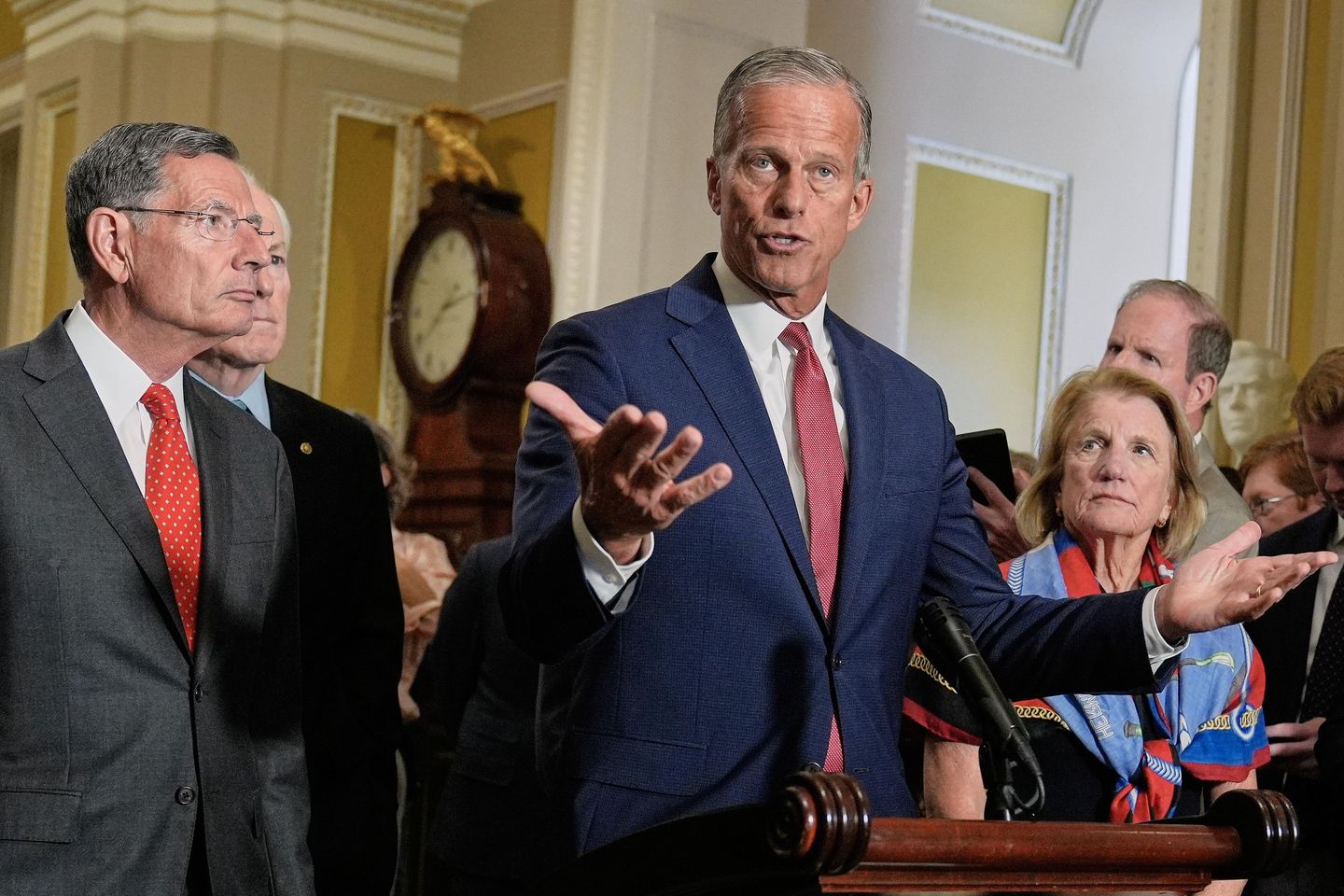
Senate Republicans, in a party-line vote late Thursday, changed the chamber’s rules to speed up confirmation of President Trump’s nominees, using the “nuclear option” after a glimmer of hope for bipartisan cooperation failed to materialize.
The chamber can now confirm groups of lower-level executive nominees with a simple-majority vote, rather than having to vote on each one individually.
The rules change will allow Republicans to soon clear a backlog of more than 100 of Mr. Trump’s nominees for sub-Cabinet posts. Other stalled nominees for federal judgeships will take more time to confirm since they’re not subject to the new rules.
The change is referred to as the “nuclear option” because it defies normal procedure requiring a supermajority two-thirds vote. Thursday’s move from the GOP is the latest in a series of nuclear salvos from both parties in recent years to make nominees easier to confirm.
Democrats made a last-ditch offer to compromise Thursday to avoid another partisan rules change. And after hours of negotiation, they reached an agreement with Republicans to cap the number of nominees that could be grouped for an en bloc vote at 15 and require the group to be reported out of the same committee.
But Democrats could not get unanimous consent on their side to bring the bipartisan deal to a vote, and Republicans did not want to waste further time filing cloture and running through procedural votes to overcome the objections.
“It’s time to move, time to quit stalling, time to vote, time to fix this place,” Senate Majority Leader John Thune, South Dakota Republican, said in floor remarks before proceeding with the original GOP plan that does not limit the number of nominees that can be batched together.
Republicans said the rules change is needed because Democrats have obstructed Trump nominees at a level that is unprecedented for any modern presidency, including Mr. Trump’s first term.
Democrats have refused to provide unanimous consent to confirm batches of Mr. Trump’s nominees, except for military promotions, or allow individual civilian nominees with bipartisan support to be confirmed by unanimous consent or voice vote.
While Democrats argued Mr. Trump’s picks are “historically bad” and deserve extra scrutiny and a full debate on the Senate floor, many were willing to relent and support the compromise. But they couldn’t get the full support of the party’s senators.
“We do not have unanimity,” Sen. Brian Schatz admitted during a floor exchange on the compromise plan. But there is “critical mass,” the Hawaii Democrat said, as he urged Republicans to take a little more time to try to reach unanimous consent or file cloture to overcome the objections.
“This would be the first major bipartisan rules reform, I think, in a political generation, maybe several political generations,” Mr. Schatz said.
“It is not lost on me on 9/11 and after the terrible political assassination of [Charlie] Kirk, that we have a special obligation to demonstrate that politics is a substitute for violence and not a precursor to violence,” he said. “And we have to demonstrate that we can be adults.”
After Republicans pushed ahead, Senate Minority Leader Charles E. Schumer accused them of doing the president’s bidding and “turning this chamber into a conveyor belt for unqualified Trump nominees.
“This is a sad, regrettable day for the Senate and I believe it won’t take very long for Republicans to wish they had not pushed the chamber further down this awful road,” the New York Democrat said.
Sen. John Cornyn, Texas Republican, said the GOP thought through the consequences, acknowledging the rules change could also benefit Democrats in the future if they were to retake control of the Senate or the White House.
“We all know whatever we do now we’ll have to live with when the tables turn,” he said. “But the truth is, Democrats have virtually all run on eliminating the filibuster, not only the executive filibuster, but the legislative filibuster. So I have no reservations whatsoever, because I think they’ll just blow the place up.”
To solidify the rules change, the GOP used a series of procedural votes on a resolution to confirm 48 of Mr. Trump’s nominees.
It culminated in a decision from all 53 Republicans to overrule the chair’s attempt to enforce the previous 60-vote threshold required to end a filibuster on the resolution grouping the confirmation votes. All Democrats were opposed.
Then, under the new rules, the Senate voted 53-45, along party lines, to invoke cloture on the resolution, ending the filibuster on the four-dozen-nominee package. A final en bloc confirmation vote on the nominees will take place next week.
The 48 nominees in the resolution include picks for important roles, like under secretary and assistant administrator, across multiple executive agencies, including the Defense, Energy, Interior and Labor Departments. One such nominee is former New York Rep. Brandon Williams, whom Mr. Trump nominated to serve as under secretary for nuclear security.
There are also eight nominees who, if confirmed, would hold the rank of ambassador. That includes Kimberly Guilfoyle, the ex-fiancée of Donald Trump Jr., who the president nominated to lead diplomacy in Greece, and Callista Gingrich, the wife of former House Speaker Newt Gingrich, who would serve in Switzerland after a previous stint as ambassador to the Holy See.












